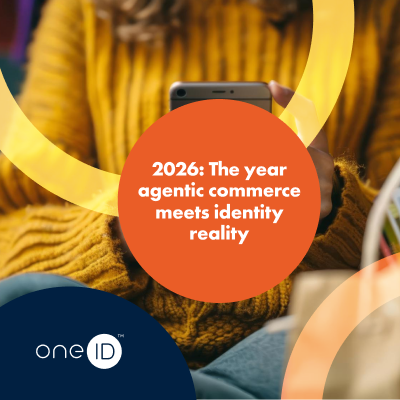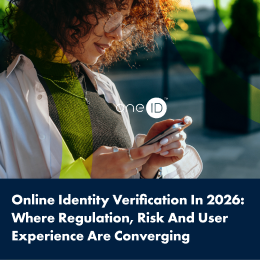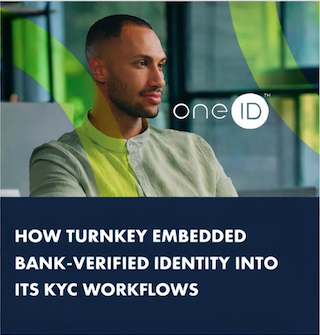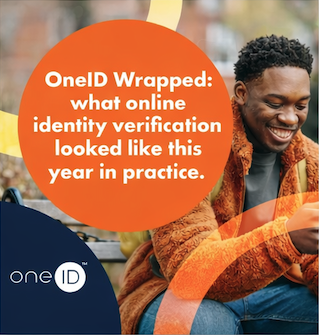According to recent surveys, seven out of 10 adults in the UK have been targeted in the last year. As technology and systems have become more advanced, so has the way in which fraudsters get money from their victims.
As part of “Be Safe Scam” week, OneID® wanted to share our views on the leading causes of fraud and what businesses business can do to ensure the safety and security of your customers online.
How criminals are committing online fraud and the impact of this fraud on victims.
Fraudsters take advantage of a lack of reliable identity on the internet and human vulnerabilities to pretend to be people they are not, or to work for organisations that they are not connected to.
Within the financial services, bank transfer fraud (or Authorised Push Payment fraud) occurs when fraudsters trick people into sending them payments, usually via the UK’s Faster Payments scheme. APP fraud cost UK banks and customers £485m in 2022; money which went to organised crime to fund drug smuggling, people trafficking and other huge social problems. Fraud is not the ‘victimless’ crime that some in politics like to portray it as; victims can be left traumatised, embarrassed, and ashamed that they have been duped.
How the emergence of new types of technology, such as artificial intelligence, is being used to commit fraud.
AI is already being used by fraudsters to create ‘synthetic identities’ (combining data from a real person with a generated picture, for instance) to open accounts and commit fraud. A digital identity can be used to prove that someone is a real human.
We believe that individuals and corporates who use AI should have accountability for what the AI does, or content that it produces, and any intellectual property rights that are used in the creation of new content. Digital identity provides a mechanism to see ‘who is accountable’ for the bot/content via watermarking, digital certificates and other ‘stamps’ that can be traceable back to the humans/corporates in charge. AI without an owner can then be treated as suspicious, not allowed to connect or turned off from social media feeds as being unverified or unsafe.
You can find more on this in our white paper “How digital identity can protect against the misuse of AI”.
The role of internet providers and social media providers in enabling or preventing fraud and actions they could take.
The Financial Services industry has argued that since most fraud originates on social media platforms (see LBG report and NWG report), the platforms should be doing more to prevent the harm and costs from occurring, but they currently have no incentive to do so.
We believe that the imminent Online Safety Act is a good start to shifting focus and responsibility to Big Tech; for example, requiring platforms to do age verification of their users to protect children online. Social media platforms could adopt identity verification from the UK’s existing certified identity industry, to ensure that account owners are humans and can be held accountable for their actions.
Banks can act today by enabling a bank-based digital identity check in customer journeys when customers interact with unknown parties over insecure channels (platforms, email, messaging etc.). The payer can share a link for the payee to verify themselves to the sending bank, before any payment is initiated, creating a more secure payment process online.
What other countries are achieving in terms of detection, prevention and prosecution of fraud.
The introduction of a bank-based identity system in Norway, called BankID, has led to the reduction of fraud to only 0.00042% of payment volumes. BankID is used by most people for most interactions online, thus keeping the fraudsters out.
OneID® is committed to making the world a safer place, which includes stopping people from becoming victims of online scams; our focus is online fraud prevention.
OneID® enables individuals to verify their identity in the fastest, safest way using their bank logon. It requires no registration process, does not store any personal data, and removes the need for scanning passports or taking selfies to authenticate your identity online.
To learn more about how OneID® can help your business to prevent against fraud, speak to one of our colleagues here.

Agentic commerce is already operating inside live retail, payments, and platform environments. For Partn...

Online identity verification entered a new phase in 2025. Across adult platforms, gambling, financial se...

Last month, we joined Turnkey for an industry event to talk about a challenge many regulated platforms a...

2025 has been a year of continued growth and real-world proof for OneID®. As expectations for identity a...